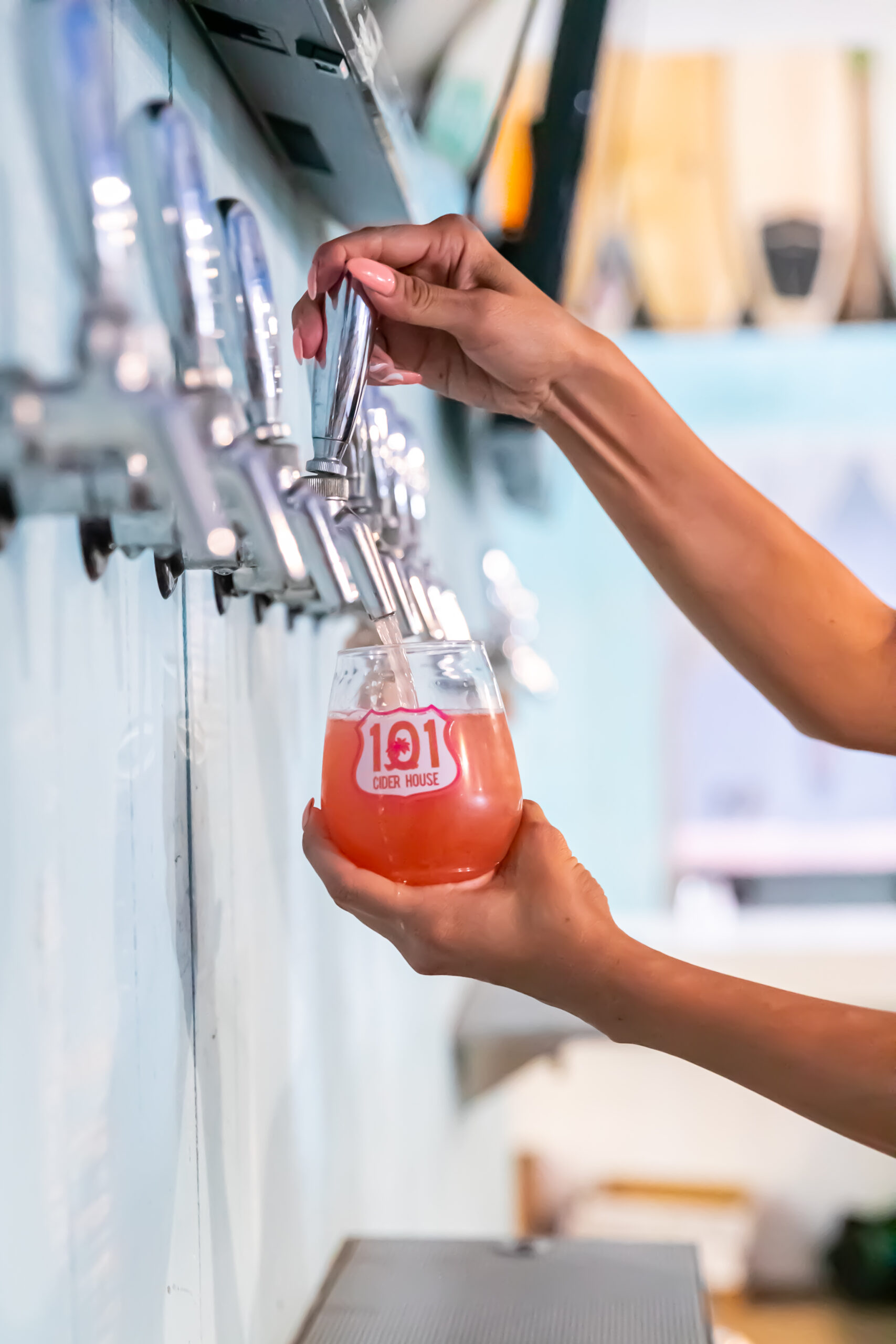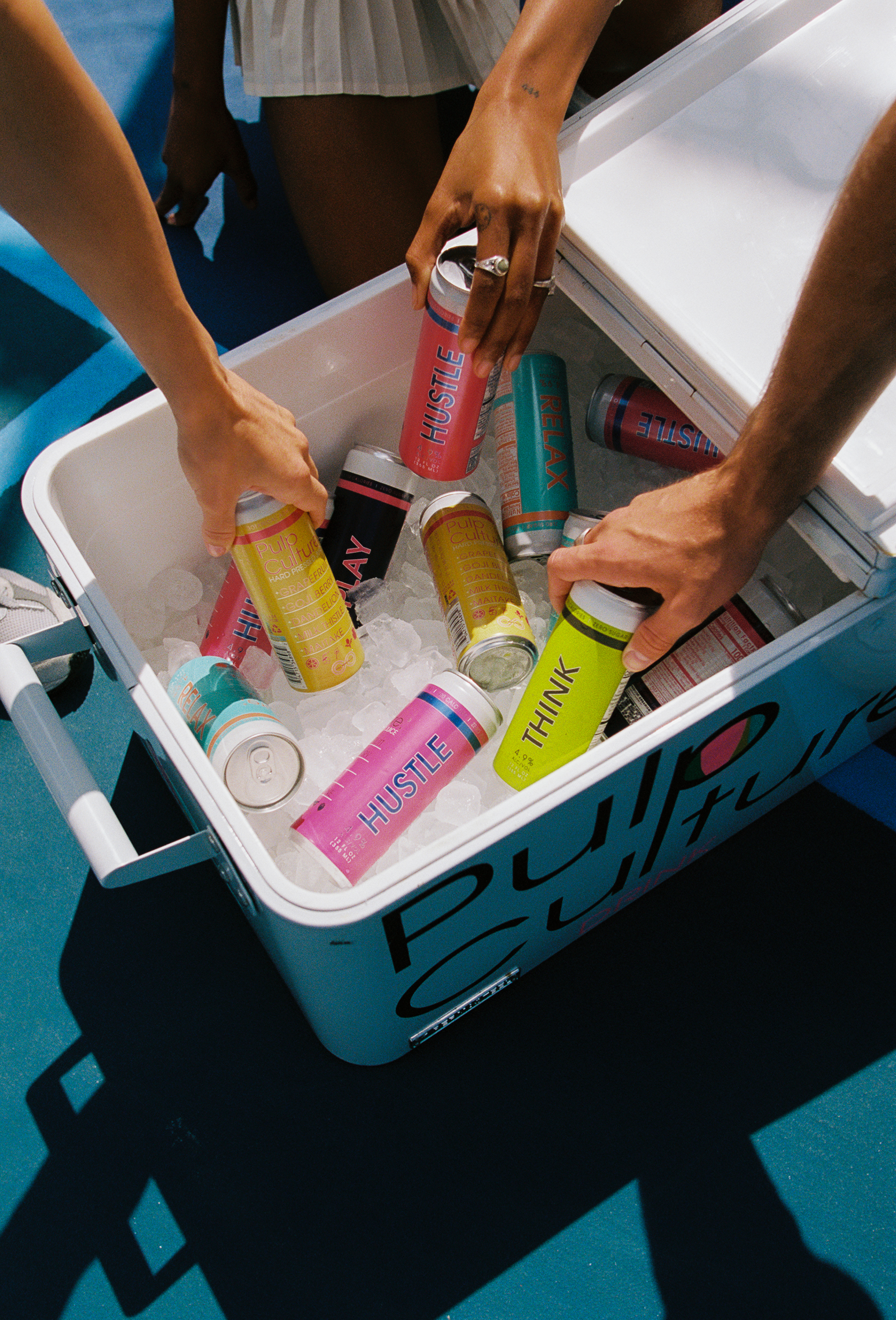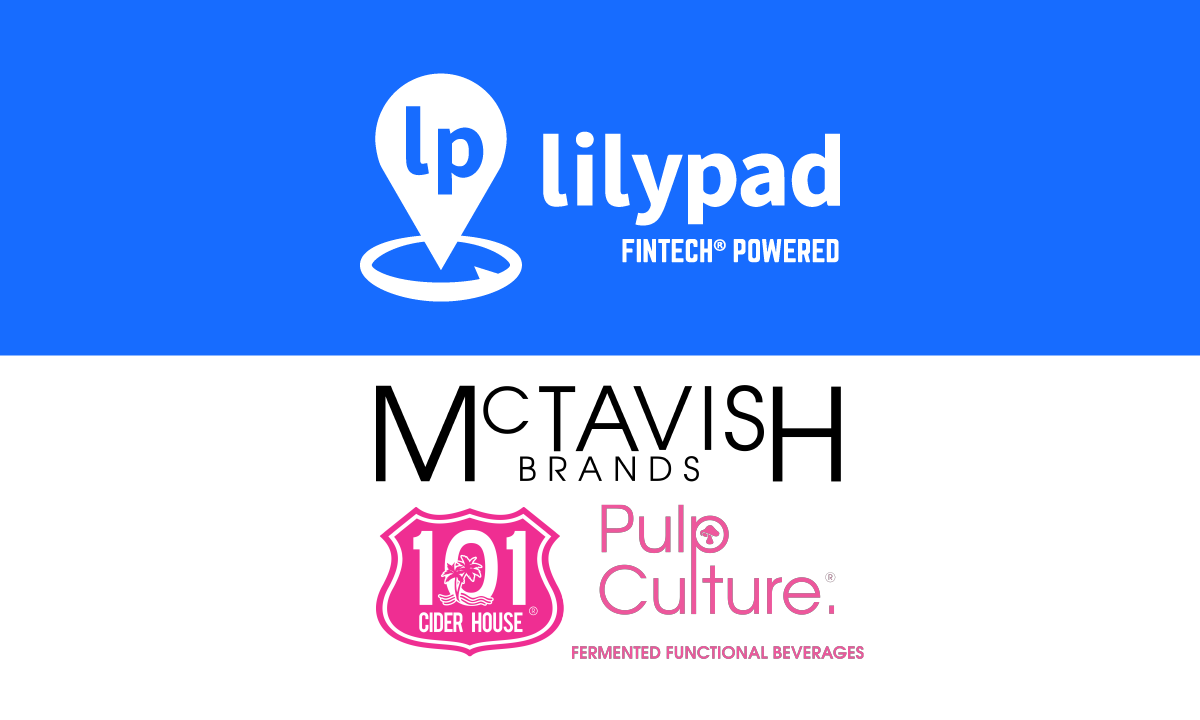For our latest Drinking Buddies, we’re featuring McTavish Brands out of Los Angeles, California. McTavish Brands is not your average brewery or cider house. They’re in the business of fermented beverages. The Los Angeles-based company currently has two unique brands – 101 Cider House and Pulp Culture – each of which offers its own unique health-conscious properties to consumers looking for a new alternative to standard alcoholic beverages. We recently sat down with Levi Logstrom, Sales Manager at McTavish Brands, to discuss the company in detail for our latest Drinking Buddies feature.

McTavish started with 101 Cider House back in 2015. The idea behind the brand was inspired by Spanish-style, Basque country, wild fermented ciders.
“Our founder was a big, big fan after visiting Europe and discovering the Basque cider. He brought it back with him and wanted to find more in Los Angeles, and he honestly was having trouble finding it. So, he decided to start making his own,” says Levi.
They took that fermentation approach and applied it to their recipes with a California spin – fruited, fun, wild, and in some cases, a little bit weird. Their current sour cider flavors include Classic (hazy apple), Gunpowder Guava (apples, green tea, guava), Sunlit (hops, grapefruit), and Cactus Rosé (cactus pear, basil, hibiscus, lemon peel) – all of which are 4.5-6.9% ABV. They also offer seasonal recipes, the most recent of which being 3 Day Weekend (apples, strawberries, hibiscus).
Throughout the growing process, they found they had this healthier alcoholic option with zero sugar that could appeal to people looking for a healthier drinking option.
“We were fermenting out of all of the sugar and when you reach that zero-sugar state, it enters what’s called secondary fermentation, also known as malolactic fermentation. Essentially, that is the process of the lactic acids eating the carbohydrates to develop probiotics.”
Levi noted that the process removes the need for adding salts or pasteurizing the product, leaving you with a living beverage that is akin to a kombucha. They found that the beverage is a great option for people who are keto, diabetic, or just want to not feel like crap the next day.
This led them to their next venture, Pulp Culture. Pulp Culture is a wild fermented fruit juice beverage that is also infused with superfoods and adaptogenic mushrooms. All the ingredients inside the beverage are still living, active, and viable, so they’ve since coined a new category for Pulp Culture, calling it a fermented functional beverage.
Levi made sure to acknowledge how they present these beverages, as there is still alcohol. However, their mission remains the same – providing healthier options with active, infused ingredients that leave people feeling better compared to traditional ciders and alcoholic beverages.
“We made an alcoholic beverage that is one of the healthiest on the market. In fact, the only ‘bad’ thing in the product is the alcohol itself, but everything else in it is providing your body with nutritional benefits.”
Pulp Culture utilizes something called “spontaneous fermentation,” a non-interventionist approach that relies on natural science. The process starts with cold-pressed juice that is left out to ferment naturally over time. The result is a zero-additive, zero-sugar, bone-dry beverage with 6 billion naturally occurring products, B vitamins, and 4.9% ABV.
Their main blends include Play, Relax, Restore, and Hustle, each of which with its own unique properties and effects.

Levi noted that this is the most environmentally friendly way to brew alcohol because it doesn’t require any heat or refrigeration.
“We can just let these things sit at room temp and they will eventually turn alcoholic, remove all of the sugar, and turn probiotic. It all happens without us doing anything,” Levi says.
This environmentally friendly approach is a cornerstone of McTavish Brands. Each decision taken is made with sustainability in mind. Levi made an interesting observation that while Pulp Culture is made for the health of the human body, 101 Cider House focuses on the health of the environment.
Cider production involves the use of naturally grown apples. 101 Cider House gets its apples from Washington, an area requiring little to no irrigation for farming due to its wet climate. This allows for less water usage to produce natural juice. 101 Cider House brings the apples down to the warehouse and ferments them at room temp. For packaging, they use printed cans with no plastic sleeves and then put the cans into recyclable cardboard packaging.
When it comes to waste, 101 Cider House leaves the juice with all the sediments in their tanks after fermentation. When they pour more juice in, it essentially referments the next batch and develops its own cultures over time. This process recycles what they have already produced and completely eliminates waste.
They have also partnered with Vancouver-based veritree, a company dedicated to restorative tree-planting projects, to plant a tree for every 4-pack of cider sold.
“Our goal is to be a climate-positive company…that is mission-driven for health for the body and health for the environment,” says Levi.
So, who is McTavish Brands for? They consider Pulp Culture their industry disruptor, so they are currently putting a lot of resources behind the brand. They are looking to the athletic community, people who consider exercise as part of their active lifestyle, and people who are just generally trying to be conscious of their health, weight, and what goes into their bodies as their key demographic.
Levi said they are conscious of the accounts they are selling to. For example, they look at natural grocery stores because those tend to have audiences that resonate with the health-first lifestyle. The overall story is that their products are designed for people who want to live a healthier lifestyle while still being able to have a little fun. Levi joked that the next step beyond that would just be not having alcohol at all, which isn’t as fun.
Throughout its growth, McTavish Brands has enjoyed using Lilypad as its CRM tool. Levi spoke on the collaborative approach of the points system as a huge part of their team’s success.
“As a manager, one of the things that I really love about it is that there is a bit of a gamification approach to Lilypad. I think there are a lot of great things that you could be doing out in the field if you are selling an alcoholic beverage that aren’t necessarily just a visit or a sale. For example, maybe you’re improving your shelf placement, maybe you’re doing tastings with buyers, [or] maybe you’re scheduling a tasting event. What I’ve been able to do with Lilypad that is huge, in my opinion, is assign point values to these activities that in the past weren’t getting great recognition.”
He said that their team looks at these attributes in their sales meetings. If someone’s sales were somewhat down for the week but they had five buyer tastings, that deserves recognition and could be an indicator of a strong week ahead.
Another thing he mentioned about Lilypad is how quickly the data is accessible to their team. In the past with other partners, they had to wait for distributor data to come out in order to cross-reference it with their data to see if all the orders were filled. This process led to some surprises if you had a situation where an order wasn’t filled but didn’t realize it until weeks later.
“Lilypad has this awesome system where you put in your order and Lilypad keeps that data. And then, [Lilypad] will look at the orders that the distributors actually sent out and were completed and then compare them against what data you said, essentially telling you if your order was delivered.”
This is huge for the supplier side, as it helps McTavish better service their customers.
Levi said his team also benefits from the follow-up features and reminder system. The daily notifications and scheduling tools keep his team organized and allow his reps to follow up with their accounts at the right time, making for a better customer experience.
What does the future of McTavish Brands look like? Levi was coy in sharing their plans but did say they are looking to move into some new markets soon. He also teased that they are looking into a “line extension” of Pulp Culture by integrating protein into some new products.
You can find more information about the brands at 101cider.com for Cider House and pulpculture.la for Pulp Culture. They also have direct-to-consumer stores if you’d like to try some of their products for yourself. If you are in the downtown Los Angeles area, you can check out their taproom at 119 Wilhardt Street. The space can be reserved for special events and McTavish Brands occasionally hosts events of their own for the public.
Any inquiries can be forwarded to [email protected].

